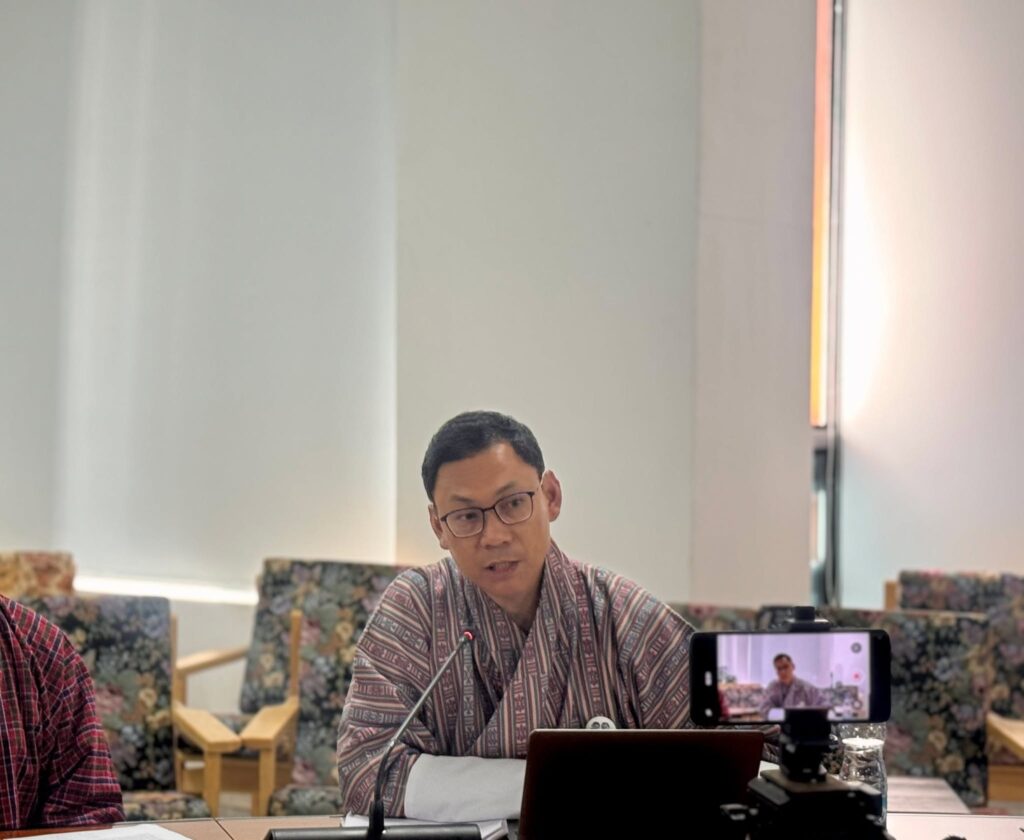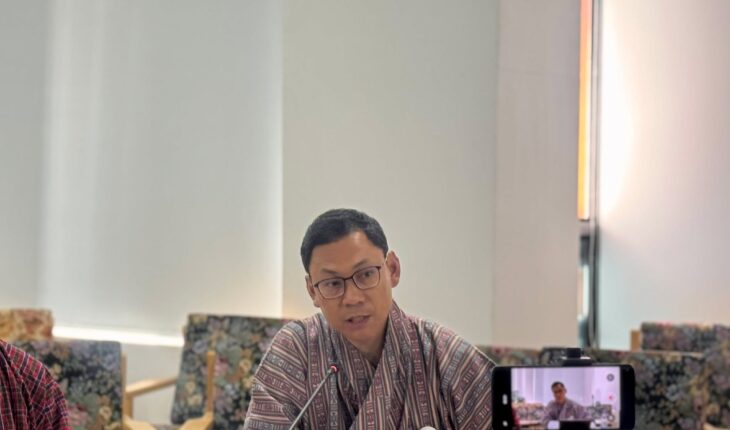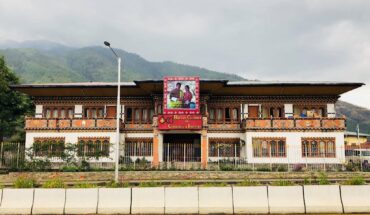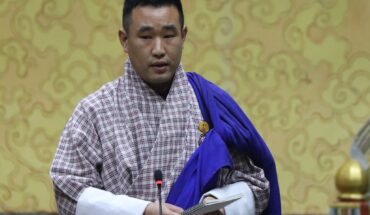
TIL BDR GHALLEY
Thimphu
Bhutan is poised to play a leading role at the 30th Conference of the Parties (COP30), scheduled from November 10 to 21, where it will advocate for equitable climate finance, recognition of mountain ecosystems, strengthened adaptation efforts, and a just transition.
Having graduated from Least Developed Country (LDC) status, Bhutan will now participate as a developing country, reaffirming its climate leadership despite increasing financial constraints.
“Bhutan remains committed to actively engaging with all parties to advance the implementation of the ‘Baku Belem Roadmap to USD 1.3 trillion’, established at COP29,” said Phuntsho Namgyal, Director of the Department of Geology and Mines under the Ministry of Energy and Natural Resources.
The country continues to advocate for grant-based, predictable, and accessible climate finance tailored to the needs of vulnerable nations.
While supporting broader participation from the private sector and multilateral development banks in mobilizing resources, Bhutan expressed concern about the risks associated with debt-based financing.
“We must agree on the definition of climate finance. Debt instruments should not be considered as non-debt climate finance,” Phuntsho Namgay stated.
Bhutan, in collaboration with other Hindu Kush Himalayan countries, has long pushed for the inclusion of mountain ecosystems in climate discussions.
Their advocacy was acknowledged at COP28, where mountain-specific language was included in the Global Stocktake (GST) and the Global Goal on Adaptation (GGA).
Despite this progress, the failure to reach a consensus on GST implementation at COP29 leaves the recognition of mountain ecosystems uncertain.
“Bhutan remains committed to ensuring that mountain vulnerabilities are reinstated in the final GST text at COP30,” Director said.
The country is also negotiating for mountain-specific metrics among the GGA’s proposed 100 new adaptation indicators, which are seen as vital for tracking progress in high-altitude regions.
Bhutan’s upcoming Third Nationally Determined Contribution (NDC 3.0) will feature actionable and inclusive targets aligned with its 21st Century Economic Roadmap.
The document will cover sectors including energy, agrifood, human settlements, surface transport, and waste, while integrating cross-cutting themes such as resilience, gender, youth, and finance. Bhutan will seek international support for effective implementation.
As the global community transitions to net-zero economies, Bhutan emphasized the importance of a just and equitable approach. “The transition must protect livelihoods and support socio-economic resilience,” he said.
The country advocates for fair market access and domestic capacity-building as key elements of a just transition.
Despite its carbon-negative status and negligible historical emissions, Bhutan is experiencing intensified climate threats, including landslides, glacial lake outburst floods (GLOFs), forest fires, and droughts.
Its National Adaptation Plan (NAP), grounded in climate risk assessments, prioritizes seven sectors: water, agriculture, forests and biodiversity, human settlements, health, energy, and disaster risk reduction.
These sectors are aligned with the seven thematic targets of the Global Goal on Adaptation. Bhutan aims to integrate adaptation into national development with assistance from bilateral and multilateral sources.
During its time as an LDC, Bhutan contributed to the creation of the Fund for Responding to Loss and Damage (FRLD). Now, as a developing country, Bhutan plans to continue advocating for access to the fund.
“We are conducting national assessments and building data systems to meet the access requirements,” Phuntso Namgay said.
Although the fund prioritizes LDCs and Small Island Developing States (SIDS), Bhutan intends to remain an influential voice among climate-vulnerable countries.
Following the conclusion of Article 6 negotiations at COP29, Bhutan reaffirmed the importance of maintaining national sovereignty over carbon assets. The country will contribute to standard-setting and will promote non-GHG indicators such as clean energy generation and forest preservation.
At COP30, Bhutan will reaffirm its carbon-negative status as a global model for climate leadership, while intensifying its focus on adaptation through the 13th Five-Year Plan and advocating for the integration of mountain-specific indicators under the Global Goal on Adaptation (GGA).
The country will also call on developed nations to honor their climate finance commitments across adaptation, mitigation, and loss and damage, particularly emphasizing the urgent need to scale up funding for the undercapitalized Loss and Damage Fund, which currently holds just USD 788 million.
With the conclusion of Least Developed Country (LDC)-specific support, Bhutan is diversifying its climate finance strategy. The government is pursuing bilateral partnerships with developed nations, exploring innovative mechanisms such as green bonds and debt-for-nature swaps, and encouraging private investment in sectors like clean energy, sustainable tourism, and nature-based solutions.
It is also engaging with philanthropic organizations and impact investors to broaden the scope of climate funding and drive national climate goals forward.
Bhutan will also utilize its leadership in the newly formed G-Zero Forum a coalition of carbon-neutral and carbon-negative countries. The G-Zero Forum Secretariat will be based in Thimphu, with the inaugural summit scheduled for October.
This platform has the potential to draw targeted financial and technical assistance for joint projects,” PM Tshering Tobgay stated.
PM further noted that hosting the G-ZERO Secretariat places Bhutan at the center of carbon-negative leadership and may open up new avenues for climate finance and collaboration.
Based on the 2022 National Greenhouse Gas Inventory, Bhutan released an estimated 1.7 million tonnes of carbon dioxide equivalent (CO₂e), while its forests absorbed about 11.7 million tonnes—leading to a net negative emission of 9.7 million tonnes.
“Each year, Bhutan helps mitigate global climate change by drawing 9.7 million tonnes of CO₂e from the atmosphere at no cost, despite its minimal historical contribution to emissions,” said Phuntsho Namgyal.
“Our emission levels are very low and reflect what we consider essential for development—what we term ‘survival emissions.’”
The Prime Minister highlighted that Bhutan’s overall emissions across all sectors are approximately 2.31 tonnes of CO₂e.
“We must continue to cut down emissions, stay conscious, and strive to sequester more than we emit,” Lyonchhen added.
Bhutan’s per capita emissions stand at approximately 6 kg CO₂e per person per day. Nationally, the country’s forests offset an estimated 11.7 million tons of CO₂e annually, resulting in a net removal of 9.7 million tons of CO₂e from the atmosphere each year.
“Our emissions are low and essential for development—they are survival emissions,” he said. Bhutan ranks 168th globally in total emissions and 140th in per capita emissions.
“Nature conservation is important, but so is economic development,” Phuntsho Namgay said. “We will continue to balance ecology and economy in all our climate efforts.”





